Filter by
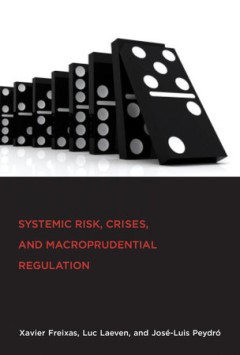
Systemic risk, crises, and macroprudential regulation
Offering a framework for understanding the reasons for the regulatory shift from a microprudential to a macroprudential approach to financial regulation, this book provides a list of challenges in the implementation of macroprudential policy and a discussion on its limitations. --OCLC-licensed vendor bibliographic record.
- Edition
- -
- ISBN/ISSN
- 9780262328609
- Collation
- 1 online resource (xiii, 472 pages) :illustrations
- Series Title
- -
- Call Number
- -
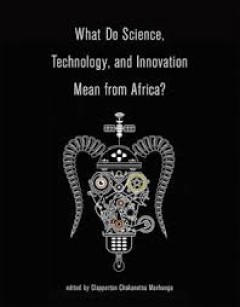
What do science technology and innovation mean from Africa
Clapperton Mavhunga's collection of essays about science, technology, and innovation (STI) from an African perspective opens with the idea, "Things do not (always) mean the same from everywhere; when we insist that only?our? meaning is the meaning, we silence other people?s meanings." Mavhunga and his contributors argue that our contemporary definitions of STI are those of countries and culture…
- Edition
- -
- ISBN/ISSN
- 9780262342322
- Collation
- 1 online resource (xiv, 241 pages) :illustrations, maps
- Series Title
- -
- Call Number
- -
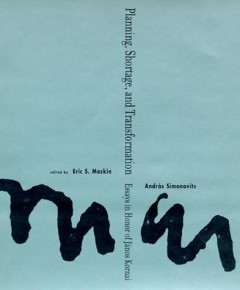
Planning, shortage, and transformation :essays in honor of J?anos Kornai
The three major themes of János Kornai's work reflected in the title of this book—planning, shortage, and transition, or transformation—figure prominently in the essays. The three major themes of János Kornai's work reflected in the title of this book—planning, shortage, and transition, or transformation—figure prominently in the essays. After a philosophical introduction by Edmond…
- Edition
- -
- ISBN/ISSN
- 9780262279222
- Collation
- 1 online resource (xvii, 439 pages) :illustrations
- Series Title
- -
- Call Number
- -
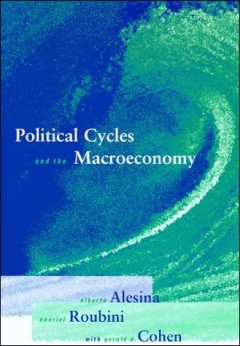
Political cycles and the macroeconomy
OCLC-licensed vendor bibliographic record.
- Edition
- -
- ISBN/ISSN
- 9780262266956
- Collation
- 1 online resource (xii, 302 pages)
- Series Title
- -
- Call Number
- -
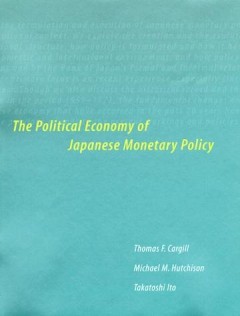
The political economy of Japanese monetary policy
The contributions in this book provide a unique view of its emergence and growth in a number of different national settings in an area of the Third World where the industry is most advanced. The motor vehicle industry has had a dramatic impact on industrialized societies, shaping the structure and productive processes of capitalist economies and defining consumer life styles. The industry's imp…
- Edition
- -
- ISBN/ISSN
- 9780262269889
- Collation
- 1 online resource (236 pages) :illustrations
- Series Title
- -
- Call Number
- -
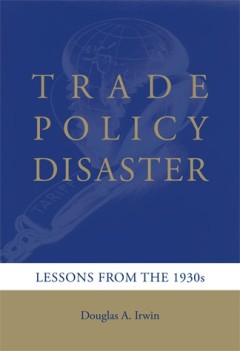
Trade Policy Disaster: Lessons from the 1930s
The extreme protectionism that contributed to a collapse of world trade in the 1930s is examined in light of the recent economic crisis.The recent economic crisis--with the plunge in the stock market, numerous bank failures and widespread financial distress, declining output and rising unemployment--has been reminiscent of the Great Depression. The Depression of the 1930s was marked by the spre…
- Edition
- -
- ISBN/ISSN
- 9780262298629
- Collation
- 1 online resource (xv, 195 pages) :illustrations.
- Series Title
- -
- Call Number
- -
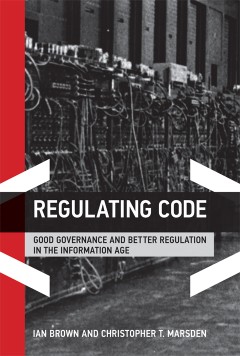
Regulating Code: Good Governance and Better Regulation in the Information Age
The case for a smarter “prosumer law” approach to Internet regulation that would better protect online innovation, public safety, and fundamental democratic rights. Internet use has become ubiquitous in the past two decades, but governments, legislators, and their regulatory agencies have struggled to keep up with the rapidly changing Internet technologies and uses. In this groundbreakin…
- Edition
- -
- ISBN/ISSN
- 9780262312943
- Collation
- -
- Series Title
- -
- Call Number
- -
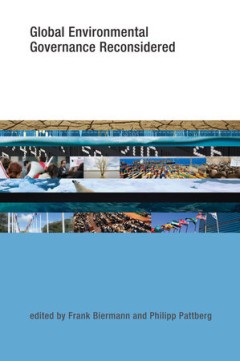
Global environmental governance reconsidered
An examination of three major trends in global governance, exemplified by developments in transnational environmental rule-setting.The notion of global governance is widely studied in academia and increasingly relevant to politics and policy making. Yet many of its fundamental elements remain unclear in both theory and practice. This book offers a fresh perspective by analyzing global governanc…
- Edition
- -
- ISBN/ISSN
- 9780262305709
- Collation
- 1 online resource (xvi, 301 pages).
- Series Title
- -
- Call Number
- -
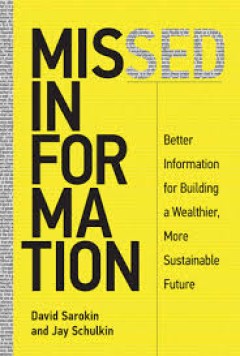
Missed information better information for building a wealthier more sustainab…
How better information and better access to it improves the quality of our decisions and makes for a more vibrant participatory society.OCLC-licensed vendor bibliographic record.
- Edition
- -
- ISBN/ISSN
- 9780262336253
- Collation
- 1 online resource
- Series Title
- -
- Call Number
- -
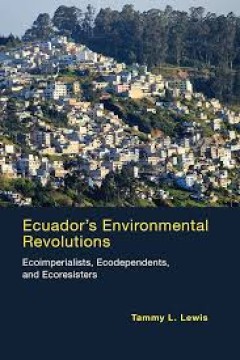
Ecuador's environmental revolutions ecoimperialists ecodependents, and ecores…
An account of the movement for sustainable development in Ecuador through four eras: movement origins, neoliberal boom, neoliberal bust, and citizens' revolution.OCLC-licensed vendor bibliographic record.
- Edition
- -
- ISBN/ISSN
- 9780262333382
- Collation
- 1 online resource
- Series Title
- -
- Call Number
- -
 Computer Science, Information & General Works
Computer Science, Information & General Works  Philosophy & Psychology
Philosophy & Psychology  Religion
Religion  Social Sciences
Social Sciences  Language
Language  Pure Science
Pure Science  Applied Sciences
Applied Sciences  Art & Recreation
Art & Recreation  Literature
Literature  History & Geography
History & Geography